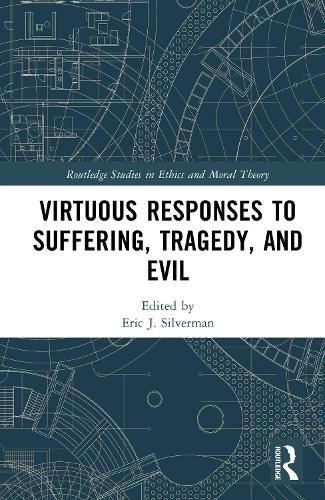Readings Newsletter
Become a Readings Member to make your shopping experience even easier.
Sign in or sign up for free!
You’re not far away from qualifying for FREE standard shipping within Australia
You’ve qualified for FREE standard shipping within Australia
The cart is loading…






Suffering and tragic situations have always been a part of human experience. This volume features essays from varying philosophical views on responses to tragedy, suffering, and evil.
Many conflicting strategies for addressing such situations have been proposed for response to such tragedies. Both Stoic acceptance and cathartic lament have been advocated. Embracing skepticism, especially religious skepticism, about the goodness of reality has been one response. While some religious adherents have responded with theodicy, others have claimed that theodicy trivializes the significance of tragedy. Anger, activism, fatalism, prayer, hope, mourning, patience, and simple silence have all been proposed as responses to the tragic. The chapters in this volume explore the patterns, habits, and beliefs that form virtuous responses to tragedy. Virtuous in this context refers to excellent character, including both moral and intellectual character, in response to the tragic.
Virtuous Responses to Suffering, Tragedy, and Evil will appeal to researchers and graduate students working in virtue ethics, philosophy of religion, theology, and ancient philosophy.
$9.00 standard shipping within Australia
FREE standard shipping within Australia for orders over $100.00
Express & International shipping calculated at checkout
Stock availability can be subject to change without notice. We recommend calling the shop or contacting our online team to check availability of low stock items. Please see our Shopping Online page for more details.
Suffering and tragic situations have always been a part of human experience. This volume features essays from varying philosophical views on responses to tragedy, suffering, and evil.
Many conflicting strategies for addressing such situations have been proposed for response to such tragedies. Both Stoic acceptance and cathartic lament have been advocated. Embracing skepticism, especially religious skepticism, about the goodness of reality has been one response. While some religious adherents have responded with theodicy, others have claimed that theodicy trivializes the significance of tragedy. Anger, activism, fatalism, prayer, hope, mourning, patience, and simple silence have all been proposed as responses to the tragic. The chapters in this volume explore the patterns, habits, and beliefs that form virtuous responses to tragedy. Virtuous in this context refers to excellent character, including both moral and intellectual character, in response to the tragic.
Virtuous Responses to Suffering, Tragedy, and Evil will appeal to researchers and graduate students working in virtue ethics, philosophy of religion, theology, and ancient philosophy.